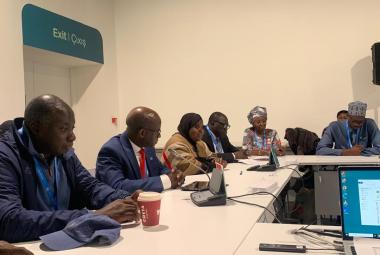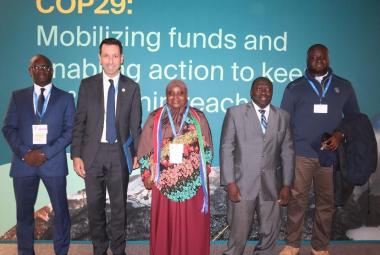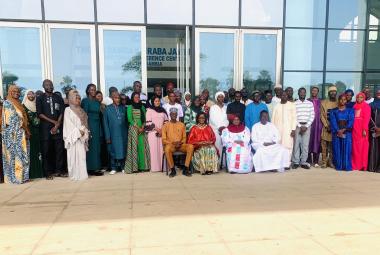Hon. Minister Rohey John-Manjang, speaking on behalf of the Least Developed Countries (LDC) group during the Presidency consultation on the “UAE Dialogue on the Implementation of the Global Stoke Take (GST)
Outcome,” emphasized the importance of the dialogue’s scope. She stated, “The LDC group believes the scope must focus on the full implementation of the GST outcome, with particular emphasis on finance and means of implementation.”
Minister John-Manjang highlighted that during the LDC Ministerial meeting in Malawi in August, the group adopted the “LDC Group Ministerial Declaration,” which calls for:
A comprehensive approach to implementing all GST outcomes, with a clear focus on the means of implementation. • Maintaining high ambitions for adaptation, mitigation, means of implementation, support, and addressing loss and damage. • Drawing lessons from the first GST to ensure that all thematic areas are covered, balancing both action and support.
She stressed that after achieving a successful GST outcome, it is essential to have follow-up mechanisms to track progress, identify and address gaps, and enhance implementation. This approach ensures climate actions remain aligned with the 1.5°C target and provide robust support to developing nations, especially LDCs and SIDS. Minister John-Manjang further emphasized the need for an inclusive space for comprehensive discussions on implementing GST outcomes, ensuring tangible benefits for the most vulnerable communities.
The Global Stocktake (GST) is a crucial process established under the Paris Agreement to assess and drive climate action. It takes place every five years and aims to evaluate the world’s collective progress towards achieving the long-term goals of the Agreement, primarily limiting global warming to well below 2°C, preferably to 1.5°C, compared to pre-industrial levels. It provides a comprehensive review of the current state of climate action. By evaluating whether countries are on track to meet their Nationally Determined Contributions (NDCs) and the overall global targets, it highlights gaps and successes.







